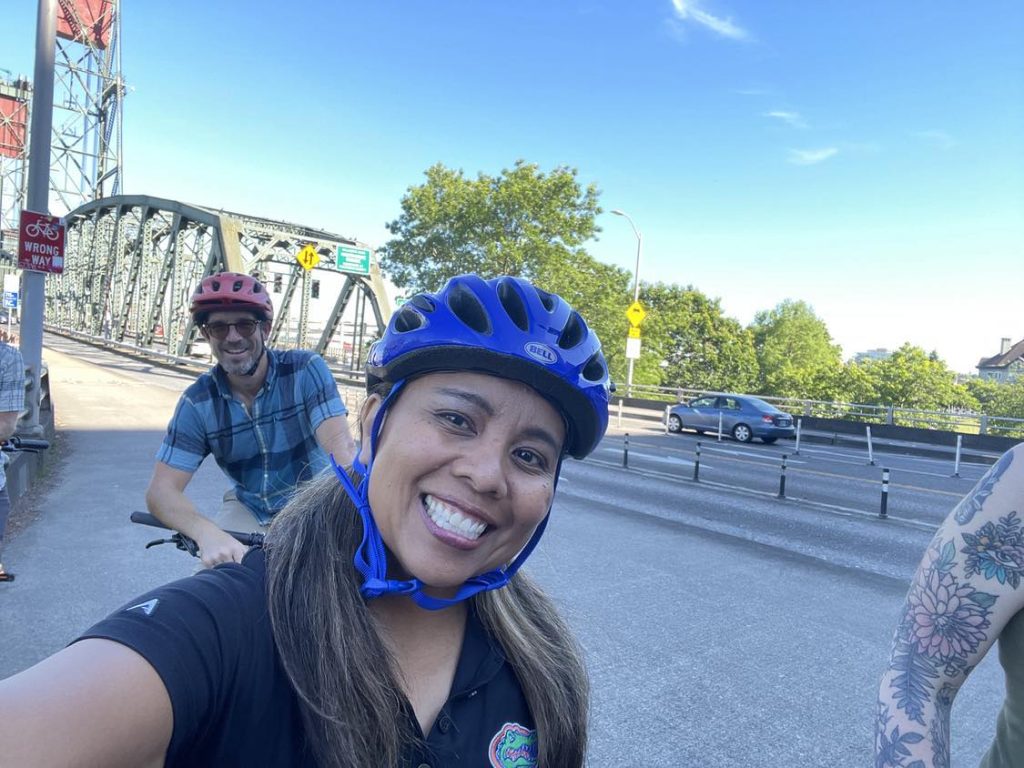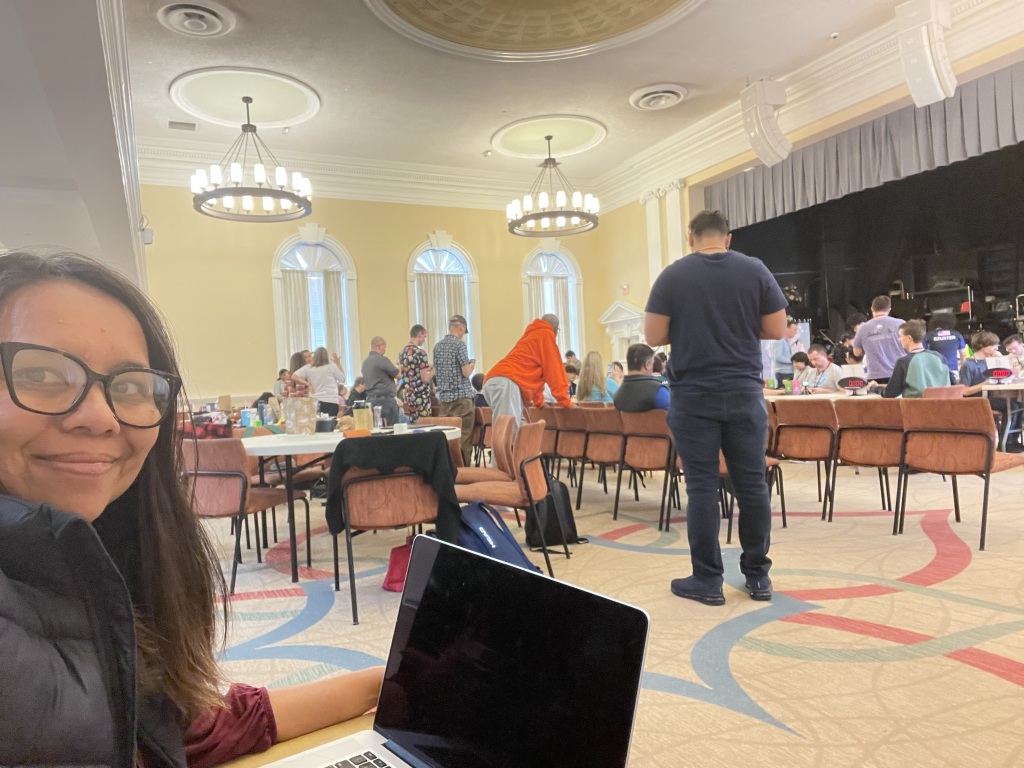By Ines Aviles-Spadoni, M.S., M.A., UFTI Research & Communications Coordinator
Perched on a bridge above an interstate leading into Atlanta, Georgia, Myra Monreal and her college classmates observed and recorded the movements of traffic below. She found this experience to be delightful – one that helped to shape her into a “plangineer.”
“I remember the moment I knew I wanted to specialize in Transportation,” Monreal said. “We had a class assignment where students observed and recorded the vehicular movements in a weaving section of the Downtown Connector in Atlanta from a bridge where we would try to predict which cars would make maneuvers such as a high-risk gore weave.”
Monreal grew up in Bartow, Florida. She moved to Atlanta, Georgia and New York City before returning to the Sunshine State. She has a bachelor’s and master’s degree in civil engineering from Georgia Tech and a second master’s degree in urban planning from Columbia University. She considers herself a “plangineer” – an urban planner who blends knowledge of policy and the built environment to provide a foundation from which to view and analyze transportation.
Monreal is currently a doctoral student at UF. Her doctoral dissertation adviser is Siva Srinivasan, Ph.D., professor and associate director of the UFTI. Her dissertation, “Navigating Blind Spots: Data and Methodological Limitations in Safety Assessment of Emerging Transportation Modes,” focuses on emerging modes of transportation, specifically golf carts.
Monreal explained that significant growth in the popularity of slower-by-design, more nimble, environmentally friendly, and cost-effective modes, such as golf carts, has risen in recent years due to a combination of social, technological, economic, and environmental factors. She said current data and methodologies were mostly developed with cars in mind, making them perhaps not the best suited to assess the smaller, slower and more vulnerable options.
“I’m looking at emerging modes of transportation, data, and methodologies used to safety analyze these modes in our existing infrastructure with golf carts as a case study,” she said.

In addition to her dissertation work, she is also an integral part of a project funded by the Florida Department of Transportation (FDOT) that tasked UF with developing an online master’s degree with a transportation leadership concentration. Monreal’s doctoral advisor is the PI of the project, and she helped to design one of the first courses for that program – the Fundamentals of the Transportation Profession. Monreal also credits her prior teaching experience at Valencia College and Rollins College in Orlando, Florida, with providing her with the skills and insights to contribute effectively to the transportation leadership concentration project.
“Understanding a student’s life circumstances and working with them to create an accessible online learning environment is something I really believe in and personally understand,” she said.
Monreal says that UF faculty and staff, such as Nancy McIlrath, a graduate academic coordinator and director of International Outreach at the Engineering School of Sustainable Infrastructure and Environment (ESSIE), were instrumental in supporting her as a non-traditional student, helping to navigate the path toward doctoral studies.
“With a family and work obligations, I thought the opportunity to get my Ph.D. had passed,” Monreal said. “Universities often serve as incubators for new ideas, where the pursuit of knowledge pushes the boundaries of understanding and sparks innovation. I wanted to learn more about emerging modes of transportation, and when COVID happened, classes moved online and suddenly this created an opportunity for me.”
What does the future look like after graduation for Monreal? She would like to create or lead an engineering program at a liberal arts college, specifically designed for non-traditional students like herself. She strongly believes that her work with the transportation leadership concentration has prepared her for this potential endeavor and has a sincere and vested interest in expanding the workforce by creating opportunities for non-traditional students or those who desire an interdisciplinary degree.
“As a student and faculty member, I am familiar with both sides of an engineering transfer program and understand the diverse needs and expectations of engineering students, the home liberal arts college, and partner engineering university,” she said.
While the academic journey to obtaining a doctoral degree is a significant accomplishment in Monreal’s life, she also values being part of the larger UF community and making sure that she is always present in her son’s life while never missing his baseball games.




